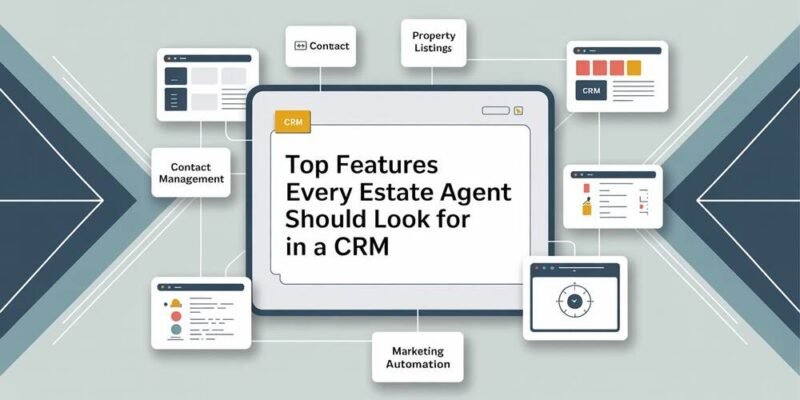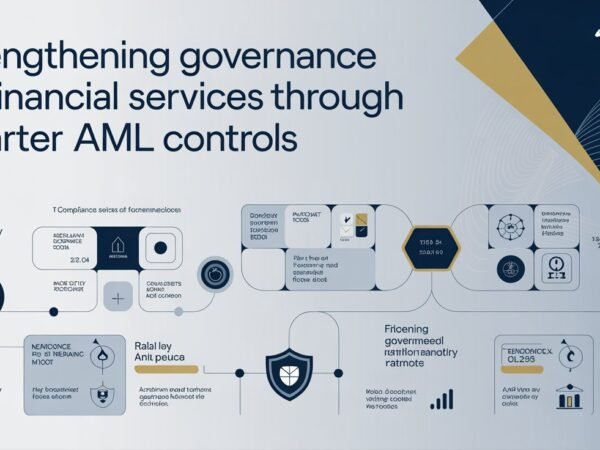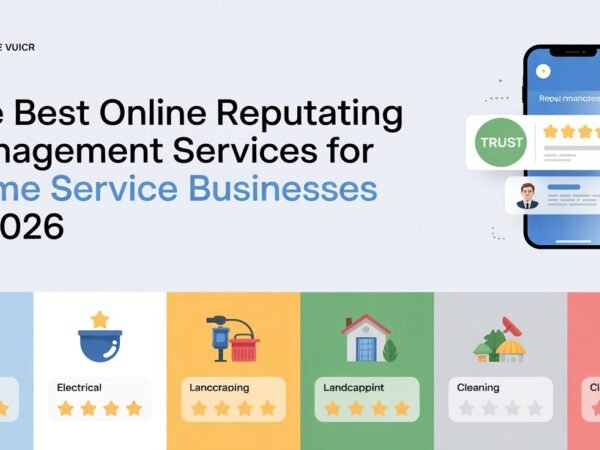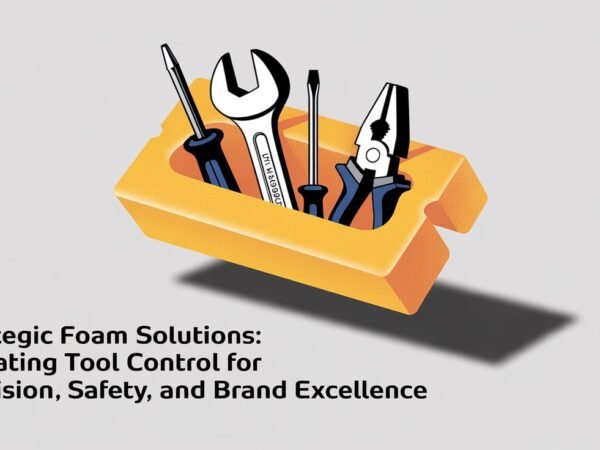The modern estate agency landscape demands more than traditional relationship management and intuitive market knowledge. In the competitive property market of 2025, success increasingly depends on leveraging technology to streamline operations, enhance client experiences, and maximize conversion rates. At the heart of this digital transformation lies the Customer Relationship Management (CRM) system—a tool that has evolved from a simple contact database to a comprehensive business management platform.
Choosing the right CRM for estate agents isn’t merely about digitizing existing processes; it’s about fundamentally reimagining how agencies operate in an increasingly sophisticated marketplace. The right system can transform how agents capture leads, nurture relationships, manage properties, and ultimately close deals.
Comprehensive Lead Management and Tracking
The foundation of any effective estate agent CRM lies in its ability to capture, organize, and nurture leads effortlessly. Modern lead management extends far beyond simply storing contact information—it requires intelligent systems that can track lead sources, monitor engagement levels, and automatically trigger appropriate follow-up actions.
A sophisticated lead tracking system should centralize efforts across the entire sales process, capturing leads from multiple channels, including property portals, social media, website inquiries, and referrals. The best CRM systems offer detailed lead-scoring capabilities that enable agents to prioritize their time by identifying the most promising prospects based on engagement patterns, search behavior, and expressed preferences.
The system should maintain comprehensive lead histories, tracking every interaction, property viewing, and communication touch point. This creates valuable insights into buyer behavior patterns while ensuring that any team member can seamlessly continue conversations with prospects, regardless of who initiated the relationship.
Intelligent Automation and Workflow Management
Time management represents one of the most significant challenges facing estate agents, who must balance property viewings, client meetings, administrative tasks, and business development activities. Intelligent automation features can dramatically reduce the administrative burden while ensuring consistent, professional communication with all clients.
Task automation should encompass routine activities such as follow-up emails, appointment scheduling, and property update notifications. The most effective CRM systems can automatically manage follow-ups, send property updates, and schedule regular appointments based on predefined triggers and client preferences.
Marketing automation capabilities allow agents to create sophisticated drip campaigns that nurture leads over extended periods. These systems can automatically send market updates, property matches, and relevant area information based on client preferences and behavior patterns, maintaining engagement without requiring constant manual intervention.
Seamless Property Portal Integration
In today’s digital-first property market, seamless integration with major property portals represents a non-negotiable feature for any estate agent CRM. Portal integration ensures that property listings, updates, and inquiries flow seamlessly between systems, eliminating duplicate entries and reducing the risk of inconsistencies.
The most effective CRM systems provide real-time synchronization with platforms like Rightmove, Zoopla, and OnTheMarket, automatically updating property statuses, prices, and availability across all channels simultaneously. This ensures that potential buyers always see accurate information while reducing the administrative burden on agents.
Advanced portal integration extends beyond basic listing management to include inquiry routing, where property inquiries from different portals are automatically captured and assigned to the appropriate agent. This creates a unified inbox for all property-related communications, regardless of their source.
Advanced Analytics and Reporting Capabilities
Data-driven decision-making has become essential for estate agents seeking a competitive advantage in crowded markets. Advanced analytics capabilities transform raw client and property data into actionable insights that guide strategic decisions and identify new opportunities.
Comprehensive reporting should cover multiple dimensions of agency performance, including lead conversion rates, average transaction times, marketing campaign effectiveness, and agent productivity metrics. These insights enable agencies to identify bottlenecks in their processes and pinpoint opportunities for improvement.
Client analytics provide valuable insights into buyer behavior patterns, property preferences, and price sensitivity. Understanding these patterns enables agents to more effectively match properties with potential buyers while tailoring their communication strategies to meet the individual needs of each client.
Mobile Accessibility and Cloud-Based Operation
Modern estate agents operate from various locations, including client homes, property viewings, networking events, and temporary office spaces. Cloud-based CRM systems with robust mobile capabilities enable agents to access critical information and perform essential tasks from anywhere, regardless of their location.
Mobile accessibility should encompass all core CRM functions, including contact management, property searches, appointment scheduling, and communication tools. The mobile interface should be intuitive and optimized for quick data entry and retrieval during client interactions.
Real-time synchronization ensures that information entered on mobile devices immediately updates across all platforms, maintaining data consistency and ensuring that all team members have access to the most current information.
Comprehensive Communication Management
Effective communication management represents the cornerstone of successful client relationships in an estate agency. A sophisticated CRM should provide a centralized communication hub that tracks all interactions across multiple channels while ensuring that nothing falls through the cracks.
Email integration should be seamless, automatically capturing and filing email communications within client records while supporting mass email campaigns and personalized messaging. The system should track email open rates, click-through rates, and response patterns to help agents understand client engagement levels and patterns.
Integrated telephony features, including click-to-call functionality and call recording capabilities, help agents maintain detailed records of verbal communications while streamlining the calling process.
Document Management and Compliance Features
The property transaction process involves extensive documentation, from initial marketing materials to final contracts and compliance records. Effective document management capabilities ensure that all paperwork is organized correctly, easily accessible, and compliant with relevant regulations.
Comprehensive document storage should support multiple file formats while providing version control and access management. Automated document generation capabilities can create contracts, property particulars, and marketing materials based on template systems and stored property data.
Compliance management features enable agencies to meet regulatory requirements, including Anti-Money Laundering (AML) checks, Right to Rent verification, and tracking of Energy Performance Certificates. Automated reminders ensure that compliance deadlines are never missed.
Making the Right Choice
Selecting the ideal CRM for estate agents requires careful consideration of current needs, future growth plans, and specific workflow requirements. The most expensive or feature-rich system isn’t necessarily the best choice if it doesn’t align with the agency’s operational needs.
Agencies should prioritize systems that offer intuitive interfaces requiring minimal training, as adoption rates directly impact return on investment. The chosen CRM should simplify rather than complicate existing processes while providing clear benefits that justify the investment of time and resources.
Scalability represents another crucial consideration, as agencies need systems that can grow with their business without requiring disruptive platform changes. The right CRM should accommodate growing client databases, increased user numbers, and evolving feature requirements.
The estate agency landscape continues to evolve rapidly, driven by changing client expectations, technological advancement, and competitive pressures. Agencies that adopt sophisticated CRM systems position themselves to thrive in this dynamic environment, delivering superior client experiences while building sustainable and scalable businesses.
Do Read: Empowering Your Business With Custom E-commerce and Retail Software Development













